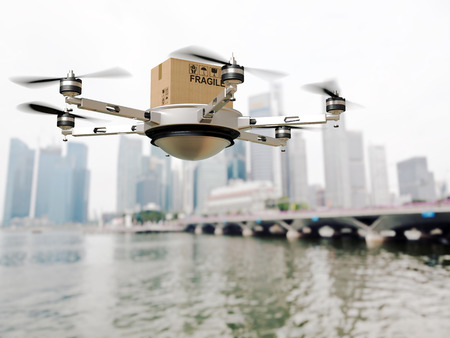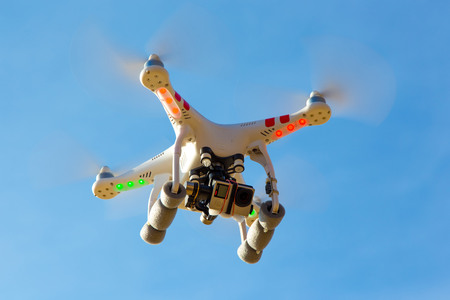Facebook's Internet Drones
One of the future applications of drones highlighted by the report in the telecommunications sector is the ability to transmit communication signals. Facebook has begun Project Aquila, based in Surrey, England, which involves building solar-powered drones that can stay in the air for up to three months at a time, bringing an internet connection to remote areas of the world.
Its structure has a wingspan of a Boeing-737 but weighs less than a car and has just had its first successful flight test in Arizona. It was able to stay airborne for over 90 minutes, performing well with all of its onboard systems operating efficiently. It’s still shy of the current record for longest continuous flight by a solar-powered drone which stands at two weeks.
To get to the point where Facebook’s drone can stay airborne for three months is going to be a long, arduous task. The ultimate plan for Project Aquila is to fly the drone above conventional air traffic, at altitudes of 60,000-90,000 feet, so that it can stay in the same place for as long as possible without obstructing other vehicles, or being obstructed itself.
Facebook is not alone in attempting to use aviation to bring the internet to other places in the world. Google’s Project Loon involves high-altitude balloons instead.
In the light of India previously rejecting the Facebook Free Basics project, the company is carefully making sure that Project Aquila is providing purely the connection, and leaving the policy of the actual services to the local companies themselves.
7-Eleven Delivers
7-Eleven, the American convenience store chain, popular in many countries around the world, has claimed to have collaborated with the drone operator Flirtey, to make the first FAA-approved drone delivery of a package in Reno, Nevada. This comes as a surprise to many, who were expecting Amazon or a similar larger retailer would win the race to the first FAA-approved package delivery by UAV.
Does this mean 7-Eleven is now leading the race of drone deliveries? It’s doubtful, considering that it hasn’t yet announced a drone delivery service, unlike Amazon and other competitors, who have been very vocal in their plans to integrate drones into their business models.
Still, as a likely one-off test, approved by the aviation authorities, it is surely a benchmark in the application of drones to the transport sector that is considered so valuable for so many companies and shows how close the reality of drones carrying packages as a normal service is.


.jpg)
.jpg)
.jpg)

.jpg)




.jpg)